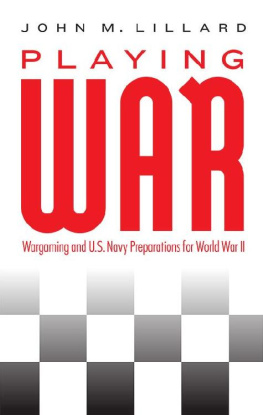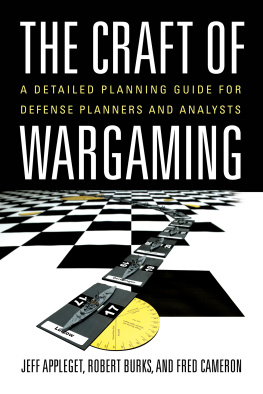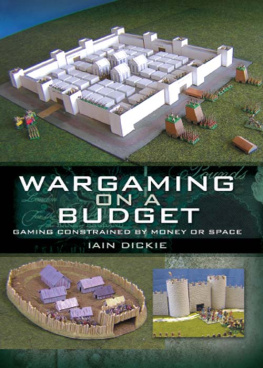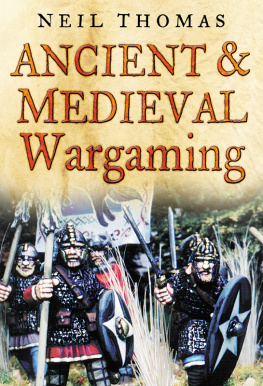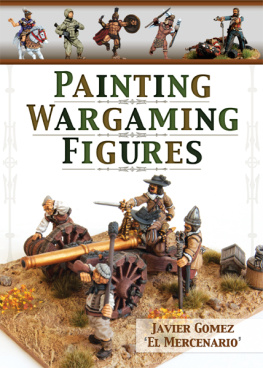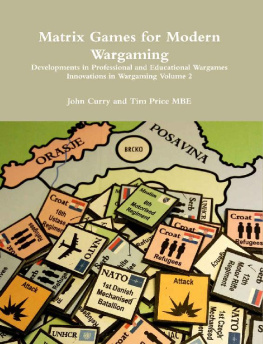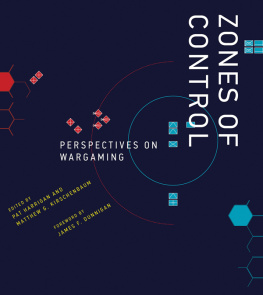John M. Lillard - Playing War: Wargaming and U.S. Navy Preparations for World War II
Here you can read online John M. Lillard - Playing War: Wargaming and U.S. Navy Preparations for World War II full text of the book (entire story) in english for free. Download pdf and epub, get meaning, cover and reviews about this ebook. year: 2016, publisher: Potomac Books, genre: History. Description of the work, (preface) as well as reviews are available. Best literature library LitArk.com created for fans of good reading and offers a wide selection of genres:
Romance novel
Science fiction
Adventure
Detective
Science
History
Home and family
Prose
Art
Politics
Computer
Non-fiction
Religion
Business
Children
Humor
Choose a favorite category and find really read worthwhile books. Enjoy immersion in the world of imagination, feel the emotions of the characters or learn something new for yourself, make an fascinating discovery.
- Book:Playing War: Wargaming and U.S. Navy Preparations for World War II
- Author:
- Publisher:Potomac Books
- Genre:
- Year:2016
- Rating:5 / 5
- Favourites:Add to favourites
- Your mark:
- 100
- 1
- 2
- 3
- 4
- 5
Playing War: Wargaming and U.S. Navy Preparations for World War II: summary, description and annotation
We offer to read an annotation, description, summary or preface (depends on what the author of the book "Playing War: Wargaming and U.S. Navy Preparations for World War II" wrote himself). If you haven't found the necessary information about the book — write in the comments, we will try to find it.
John M. Lillard: author's other books
Who wrote Playing War: Wargaming and U.S. Navy Preparations for World War II? Find out the surname, the name of the author of the book and a list of all author's works by series.
Playing War: Wargaming and U.S. Navy Preparations for World War II — read online for free the complete book (whole text) full work
Below is the text of the book, divided by pages. System saving the place of the last page read, allows you to conveniently read the book "Playing War: Wargaming and U.S. Navy Preparations for World War II" online for free, without having to search again every time where you left off. Put a bookmark, and you can go to the page where you finished reading at any time.
Font size:
Interval:
Bookmark:
The best compilation of information and analysis of the wargaming efforts at the Naval War College between the wars [that is] currently available. It provides a needed corrective to some of the inaccurate mythology that has come to surround this subject.
Peter Perla, author of The Art of Wargaming: A Guide for Professionals and Hobbyists
A valuable book with a lot of detail that has never been assembled in one place before, and Lillards appraisal of the roles of the wargames is on target.
Capt. Wayne P. Hughes Jr., U.S. Navy, Ret., professor of practice at the Naval Postgraduate School and author of Fleet Tactics: Theory and Practice
Playing War is an outstanding study of the U.S. Naval War Colleges interwar institutional culture. More than that, this book fills a major historiographical gap when it comes to not only the colleges history but also that of the navy and its war-planning methods.... This book is a must-read for any historian of the U.S. Navy or U.S. national security policy history.
Hal M. Friedman, author of Digesting History: The U.S. Naval War College, the Lessons of World War Two, and Future Naval Warfare, 19451947
Lillard makes an excellent case that the Pacific War was won on the game floor of the Naval War College.
Albert A. Nofi, author of To Train the Fleet for War: The U.S. Navy Fleet Problems, 19231940
John M. Lillard
Potomac Books
An imprint of the University of Nebraska Press
2016 by the Board of Regents of the University of Nebraska
Author photo courtesy of Jenny Calivas
All rights reserved. Potomac Books is an imprint of the University of Nebraska Press.
Library of Congress Cataloging-in-Publication Data
Lillard, John M., 1958 author.
Playing war: wargaming and U.S. Navy preparations for World War II / John M. Lillard.
pages cm
Includes bibliographical references and index.
ISBN 978-1-61234-773-8 (cloth: alk. paper)
ISBN 978-1-61234-825-4 (epub)
ISBN 978-1-61234-826-1 (mobi)
ISBN 978-1-61234-827-8 (pdf)
1. Naval War College (U.S.)History20th century. 2. War gamesUnited StatesHistory20th century. 3. United StatesNavyManeuversHistory20th century. 4. Naval strategyStudy and teachingUnited StatesHistory20th century. 5. Naval educationUnited StatesHistory20th century. I. Title. II. Title: Wargaming and U.S. Navy preparations for World War II.
V 420. L 55 2016
359.4'8097309041dc23
2015029794
The publisher does not have any control over and does not assume any responsibility for author or third-party websites or their content.
I dedicate this book to my family. First, thanks to my lovely wife, Barbara, who gave me the encouragement and indulgence necessary to make this quest a reality. Second, thanks to my sons, Jim and Sean. I went back to school for many reasons, but one of them was to show those two that it was possible for an old dog to learn a few new tricks. Last, I thank my dad, who I always felt was looking over my shoulder and enjoying what he was reading.
I particularly acknowledge the assistance of the Naval Historical Collection, especially head archivist Dr. Evelyn Cherpak, for providing me with the research materials and assistance necessary to complete this work and for never failing to come up with a resource when I needed it. Thanks also to Ed Miller, who many years ago guided and inspired me to take this project on and see it through to the end. I also acknowledge the support and assistance of my doctoral advisor, Professor Christopher Hamner, and my dissertation board members, Professors Martin Sherwin and Aric Thrall. Thanks also to a long list of friends, especially my study partners Becky Erbelding and Tracy Fisher, who always maintained a lively interest in this project. Finally, I recognize the assistance of the information technology section of Whitney, Bradley, and Brown Inc., who, more than they will ever know, facilitated the completion of this project.
In October of 1960, Fleet Admiral Chester W. Nimitz delivered a speech to the staff and students of the Naval War College in Newport, Rhode Island, on how the wargames conducted at the War College during the 1920s and 1930s contributed to American tactical and strategic successes during the last two years of World War II in the Pacific theater. In his speech Nimitz, recalled by former director of naval history Earnest MacNeill Eller as the principal architect of the American victory in the Pacific, asserted that the war with Japan had been re-enacted in the game rooms [at the Naval War College] by so many people and in so many different ways that nothing that happened during the war was a surpriseabsolutely nothing except the kamikaze tactics towards the end of the war.raises intriguing questions about the specific ways in which the games prepared and, in some respects, failed to prepare future naval leaders and their navy for war.
When Nimitz attended the War College from 1922 to 1923, the theories of Alfred Thayer Mahan still dominated U.S. Navy doctrine. Since 1890 Mahan emphasized that a great navy is one designed to fight an enemy in fleet engagements in order to win command of the sea, not one designed for commerce raiding or guerre de course. This philosophy shaped U.S. Navy strategy and force structure well into the twentieth century. However, Nimitz and his classmates had never had the opportunity to put Mahans theories to the test in actual combat. The last major American naval actions occurred against understrength Spanish fleets in 1898. American naval involvement in the First World War was limited to convoy support and antisubmarine patrols, and the minor naval operations of the interwar period, between 1919 and 1941, did not provide any occasions to prove or disprove Mahanian doctrines. But while their experience and education were grounded in the doctrines of the previous century, the student-officers of the interwar period like Nimitz, Ernest King, and Raymond Spruance led a very different navy to war in the 1940s. Their new navy possessed a long-range punch that centered on fast aircraft carrier task forces rather than battleship battle lines. This navy interdicted distant enemy lines of communication with high-endurance submarines. It repeatedly landed fully equipped ground units over enemy-held beaches, stayed at sea for long periods without returning to port, and carried its logistics support train forward with the battle fleet instead of sending combatant ships to homeports for refitting and repairs. It employed a wide range of new ship types and improved weapons, communications, and especially sensors such as radar and sonar. None of these capabilities were present in the U.S. Navy when the First World War ended, and none of the navys leaders had much in the way of operational experience with them before Pearl Harbor. However, the navy introduced and experimented with all of them to varying extents during the interwar years.
These new developments were not just in doctrine and technology
This catalog of progress raises a basic question: How did a navy whose last experience in major combat occurred in the previous century transform itself so profoundly? Nimitzs speech suggested that he credited the Naval War Colleges wargames with a major role in that transformation. Naval scholars generally agree that the Naval War College wargames were one of a number of techniques such as fleet exercises, formal war planning, and senior officer group deliberations that the navy used during the interwar period to manage its preparation for war. Comprehensive studies of the fleet exercises, formal war planning, and senior deliberations have informed the understanding of the navys transition, but there is no analogous study of War College gaming during the period.
Font size:
Interval:
Bookmark:
Similar books «Playing War: Wargaming and U.S. Navy Preparations for World War II»
Look at similar books to Playing War: Wargaming and U.S. Navy Preparations for World War II. We have selected literature similar in name and meaning in the hope of providing readers with more options to find new, interesting, not yet read works.
Discussion, reviews of the book Playing War: Wargaming and U.S. Navy Preparations for World War II and just readers' own opinions. Leave your comments, write what you think about the work, its meaning or the main characters. Specify what exactly you liked and what you didn't like, and why you think so.

